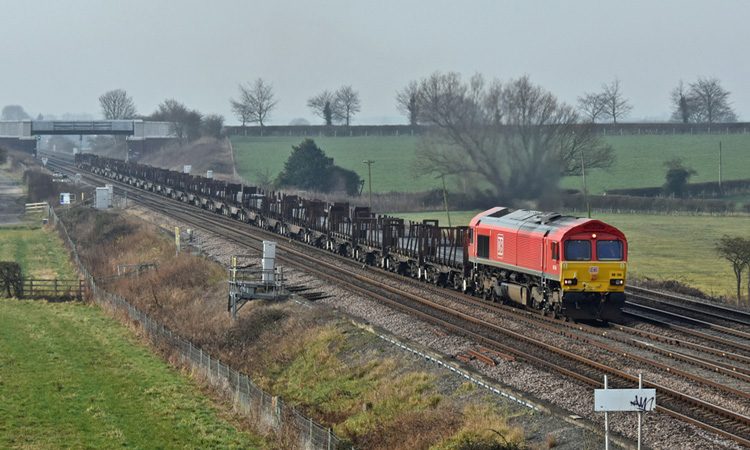Testing times ahead for UK rail freight, warns FTA
Posted: 7 June 2019 | Global Railway Review | No comments yet
Despite the growth of UK freight in 2018, the FTA has warned that the industry must still be cautious as to the future of growth as Brexit looms ever closer.


Domestic bulk and semi-bulk rail freight grew beyond all expectations in 2018, according to FTA’s 2019 Logistics Report, launched in association with Santander Corporate and Commercial Banking. But the organisation, which represents the interests of the logistics sector, warns more challenging times lie ahead for the rail freight sector, with the uncertainty surrounding Brexit set to compromise this trajectory.
Elizabeth de Jong, Director of UK Policy at FTA, the organisation representing the interests of the logistics sector, commented: “While 2018 saw a notable growth in domestic bulk and semi-bulk rail freight – possibly due to the expansion of the construction sector – sentiment for 2019 is much more subdued, indicating we are entering more challenging times. The uncertainty surrounding Brexit has already led to hesitancy among clients with manufacturing growth reaching a three-month low in January and new business projects falling to an eight month low.”
The 2019 Logistics Report, launched by FTA in association with Santander Corporate and Commercial Banking, polled the opinions of more than 500 freight and logistics businesses operating in the UK and internationally, to provide industry insight into the latest political and economic developments.
With indications of a reduction in global demand in 2019, the survey respondents anticipate a substantial decrease in domestic intermodal activity. Internationally, bulk and semi-bulk rail freight declined in 2018, with no change predicted next year.
John Simkins, Head of Transport and Logistics, Santander Corporate and Commercial, commented: “Uncertainty has been the inevitable reality for UK businesses over the last year, especially for those operating in transport and logistics. Last year was a bumper year for domestic bulk and semi-bulk rail freight but according to the report, the outlook for 2019 is not so optimistic. In order that UK businesses can continue their operations with as little disruption as possible, it is vital that we work closely with the transport and logistics industry. The importance of the sector must not be undervalued, which is why we remain committed to continuing our work with the FTA and businesses in the sector in 2019 and beyond.”
The report also found that the UK’s global competitiveness has dropped significantly and investment in the UK’s transport and logistics infrastructure is urgently required to boost its attractiveness to international investors. Furthermore, the survey indicated that the uncertainties surrounding Brexit are taking their toll on the wider logistics industry; 61 per cent of respondents say this uncertainty is a barrier to the growth of their businesses internationally.
Efficient logistics is vital to keep Britain trading, directly having an impact on more than seven million people employed in the making, selling and moving of goods. With Brexit, new technology and other disruptive forces driving change in the way goods move across borders and through the supply chain, logistics has never been more important to UK plc.
Related topics
Cargo, Freight & Heavy-Haul, Funding & Finance, Regulation & Legislation








